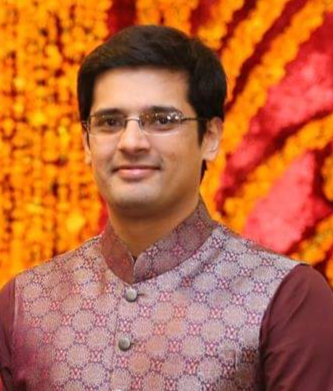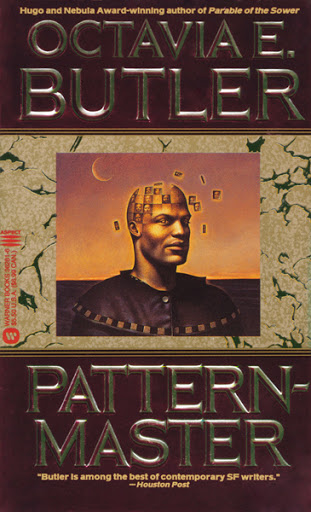Berl found it a comforting background to his work to hear his neighbors’ boots squishing through the village mud as they passed his bakery, but at the sound of dozens of trudging feet he looked up in alarm. Through the window he saw an army officer walking towards his bakery, followed by a squad of metal-footed machines.
The officer, a captain, knocked on Berl’s door. Berl did not want to make trouble; he wiped his hands on his apron and was smiling by the time he opened the door.
“Come in and dry off,” he said politely. It had been a long day of kneading and lifting for Berl, but even so the captain had slept less recently and less comfortably, and his rubber coat could not keep his wool coat dry. Huddled in the muddy street behind the captain stood his machines: long rectangular iron boxes, each standing on a tripod of birdlike legs, steaming in the rain.
“I’ve brought your new oven,” said the captain.
“New oven?”
The captain looked annoyed. “You should have received a letter with the royal seal.”
Berl had received a letter with the royal seal, and asked the village witch to read it to him, hoping for news of his son. There was none; Berl had ripped the letter up and his oven had turned the pieces to ash in a moment.
“I don’t need a new oven,” he told the captain. “I need salt, and sugar.” I need my son back.
“The rationing will be lifted as soon as possible,” said the captain. “For now… this is a personal gift from the royal family. The first fruits of the new era of peace.” He seemed to believe this himself, which was nice enough. “Put your mark here, please.”
From a pocket of his rubber coat the captain took a small leather-bound book. He leaned into Berl’s doorway, out of the drizzle, and opened it to a page covered in rows of neat penmanship. It looked like a ledger without numbers. Down the right-hand side of either page ran a line of fingermarks, a dozen fingers scarred by burns, the great hazard of Berl’s profession.
Berl pressed his second finger against a blank spot on the paper and his fingermark appeared dark upon it, just beneath that of the previous oven recipient. The captain gestured to his flock of iron birds and one of the tripods loped through the mud towards the bakery, stopping at his side. Berl felt a dry, familiar heat. A cavity ran through the rectangular box; Berl could look right through it and see the village on the other side.
“One ‘Mama Jolice’ class field oven,” said the captain. He slapped the oven with a gloved hand and it shifted its weight to keep its baking surface completely straight. “Decommissioned for civilian use. Needs no fuel. May it bring your village health.”
The captain swiveled one boot in the mud and walked back to his company of machines. In unison they straightened and marched behind him, sloshing through the mud, through the village, into the countryside.
With the stranger gone, the life of the village resumed, as much as possible given the rain. People stared at Berl and the oven, but nobody cared to stare too hard. A time had been when the attention of royalty was a boon, but no one was yet convinced that time had returned.
The articulated toes of the oven’s three feet grasped for purchase in the mud. Berl looked it over. It was a forge for bread: a three-legged rectangular prism with a cavity running through it, warmed by some magical source. A second, solid prism dangled from the first, forming a somewhat obscene counterweight between the two hind legs. The oven hissed as it turned rain to steam, moving less than a living thing would, but more than an oven ought to move.
“I suppose you should come in,” said Berl. It was a royal gift, and well-meaning, if a little patronizing. The oven did not respond. “Wait here.” Berl fetched the wire bootbrush, knelt and scrubbed the mud off the oven’s cold, worn feet as rain dripped into his bakery. The prospect of no longer needing to buy wood made the work worthwhile.
Stains of all kinds were burnt onto the oven’s body, stains that would not come out without magic or chemistry unavailable to Berl. Even after Berl’s ‘cleaning’, the iron beast smeared mud across his bakery floor as it clanked behind him to the real oven, wood-fired and brick.
When the captain had interrupted him, Berl had been finishing the day’s work, kneading a charity loaf from bits of leftover dough he had accumulated throughout the day. The dough had half-risen where Berl had set it on the board. Berl quickly kneaded it again and put it into a proofing bowl. Behind him the oven’s feet scratched at the stone floor like a cat testing its claws.
Berl left the dough to rise and started sweeping up. Out of the corner of his eye he saw the oven rear up onto its hind legs and reach with its front foot for the proofing bowl. “No. Stop!” Like a misbehaving pet. “Let it rise.” The oven slowly lowered its front leg, swaying back and forth, feeling its way to the ground like a child descending a tree.
Once the cleaning was done, Berl turned the charity loaf onto a peel and slid the peel deep into the maw of the new oven. Abruptly the dough lurched—no, not the dough but the metal underneath, shifting like a giant peel itself, slowly swallowing the bread deeper into the oven, towards the hole in the back.
If this was the oven’s idea of baking, it was moving much too quickly. At this rate the bread would leave the oven in less than the turn of one small sandglass. Berl walked around the oven, watched the loaf and caught it on his peel as it fell out. The bread was half-baked. He ran it through again; it was burnt halfway through and raw in the center.
The loaf was army food. This oven was to be run by farmboys who had never handled wheat between its threshing and its final destiny as bread. The instructions had to be simple enough to be barked from one poor bastard to another: put the dough in the oven and catch it in a basket.
Berl wiped sweat that may have contained tears. This oven, the unwanted gift of it and the idiotic fact of it, was Berl’s life in miniature. Once he had made cakes; there had been sugar; he was respected; he knew where his son was. Then war had come, destroyed all the craft and care and love in the world.
The war was over, but what had gone was still gone, and these replacements were not replacements at all. All food had become Army food.
Berl tasted a piece from the middle of the loaf, where it came closest to being baked. To waste food is a sin, and until recently it had been a crime. Last winter he would have gagged this down and been grateful, but by the standards of this rainy spring it was inedible. No one would take this loaf, even as charity. He threw the dead thing in a compost bin, atop vegetable scraps damp from the stock-pot.
Berl was exhausted, furious at the waste of already wasted food. He turned to kick the misbehaving machine and finally saw it move on its own. Its metal knees bent and it shied away from Berl’s tensed foot, like an animal that knows what is coming.
In his apprenticeship Berl had burned a loaf, and worse. He had been beaten, and from the beatings he had made himself a promise that he had almost just broken. Instead Berl cursed the Army and its useless gift, a machine he couldn’t even kick because the machine would feel it.
The oven itself was not to blame. It was made by people who did not understand bread; why expect it to understand? But perhaps it could be taught. A machine that had learned to fear a beating could learn other things.
“Do you want to do better?” Berl asked the oven cautiously. “Do you want to become good at being an oven?”
The oven said nothing, of course.
The evening was late by now and the brick oven, the one that actually worked, had lost most of its heat. Berl was now very tired, but long ago, with bruises so painful he could not sleep, he had chosen how he would treat his future apprentices. His decision had already been made. Berl lifted the hand at the end of the new oven’s front leg and guided it towards the brick.
“This is an evening heat,” he said. “A heat for cakes. Can you give off this kind of heat?”
The new oven moved its hand up and down the old oven. Keeping both ovens in his view, Berl did his best to mix a pound cake where the new one could see what he was doing. Mushy apples replaced the eggs and sugar, on-edge sheep’s yogurt the butter. It would not be the worst cake he had made that year.
After pouring the batter into its tin, Berl put his hand inside the new oven, careful not to touch the sides. Its military blast-furnace heat had died down to a low bake like that of smouldering coals.
“Very good,” Berl said. He mimed putting the cake tin in the brick oven, but left the tin on the table and stepped back.
Again the mechanical oven balanced itself on its hind legs. With its front foot it grasped the tin and slid it back into its own aperture as if gorging itself on the dubious treat. It stepped back, away from Berl and the brick oven. Berl peered through the aperture. The cake sat inside, calm, still, not shifting towards the rear.
The oven and the cake inside stood still for three turns of the small glass. Berl washed the dirty bowl, then sat and waited. When he smelled the cake finishing, he cut a crumb to taste. It tasted good, given the circumstances. Berl was probably the only one in the village who remembered what cake ought to taste like.
Berl reached his peel into the oven and pulled out the tin. “Do you see?” he told the oven. “You must take control of the heat. This is baking. You are not simply keeping men alive today so they can die tomorrow. You are sustaining people, bringing pleasure.”
The oven plucked the tin off Berl’s peel and set it on the counter with a clank. “Tomorrow I will show you how to knead dough,” said Berl. He flexed the fingers of his hand and the oven did the same.
With the cake stored in a wooden box much nicer than it deserved, Berl dragged his cot from the adjoining room into the bakery proper. His first night away from home had been lonely and terrifying, and he did not know how to ask an oven if it was lonely, or understand its answer.
Things have been destroyed that cannot be replaced, but this destruction is not the end of everything. Today’s bread is eaten, tomorrow’s is yet to be made, and one day there will be sugar.
© 2022 by Leonard Richardson
1900 words

Leonard Richardson works as a software architect at the New York Public Library, making it easier for library patrons to borrow ebooks. He’s the author of two SF novels, Constellation Games and Situation Normal. He writes on the web at www.crummy.com.
If you enjoyed the story you might also want to visit our Support Page, or read the other story offerings.



